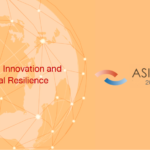This study puts forth the importance of the smallholders’ role on the sustainability of palm oil. A comprehensive literature review has revealed that there are just case studies that attempt to analyze the relation between the key actors including Civil Society Organizations (CSOs), media, palm oil industry, palm oil supply chain and governments exerting considerable influence in the palm oil supply chain and they could shape the future direction of the industry with respect to sustainability. Sustainability is a shared responsibility. However, most party just rely on the large corporations to solve the problem, yet the smallholders farmers are largely overlooked by sustainability initiatives and discussions about environmental issue and the production process. While in fact in Indonesia, smallholder managed more than 40 percent or equal to 4.2 million hectares of all plantations and independent smallholders account for more than 3.1 million hectares of palm oil farmland. For this reason, smallholders must play a role in impacts on environmental and social sustainability.
The inclusiveness of the smaller processors and traders is necessary to ensure that a small portion of the material in the industry’s supply chain is certified or produced in line with local laws on environmental protection. According to a discussion, which was commissioned by the World Bank Group, the problem is more serious among independent smallholders, because supported or ‘plasma’ smallholders under land schemes like the NES schemes and subsequent cooperative schemes (KKPA) in Indonesia have access to technical and financial support from the ‘parent’ companies.
As the palm oil industry moves towards production of certified sustainable palm oil according to the standards set by the RSPO, smallholders face the risk of being kicked out of the industry if they do not improve production practices to meet the rigid certification requirements. Therefore, we can conclude that if the smallholders’ are not being reached out, the sustainability of the palm oil industry will not be accomplished. Consequently, the sustainable production and use of palm oil should be based on a framework for sustainable development and good governance that also include the interests of the smallholders.

Josephine Rakun Lunardi
A Research Fellow in Value Chain Analysis



